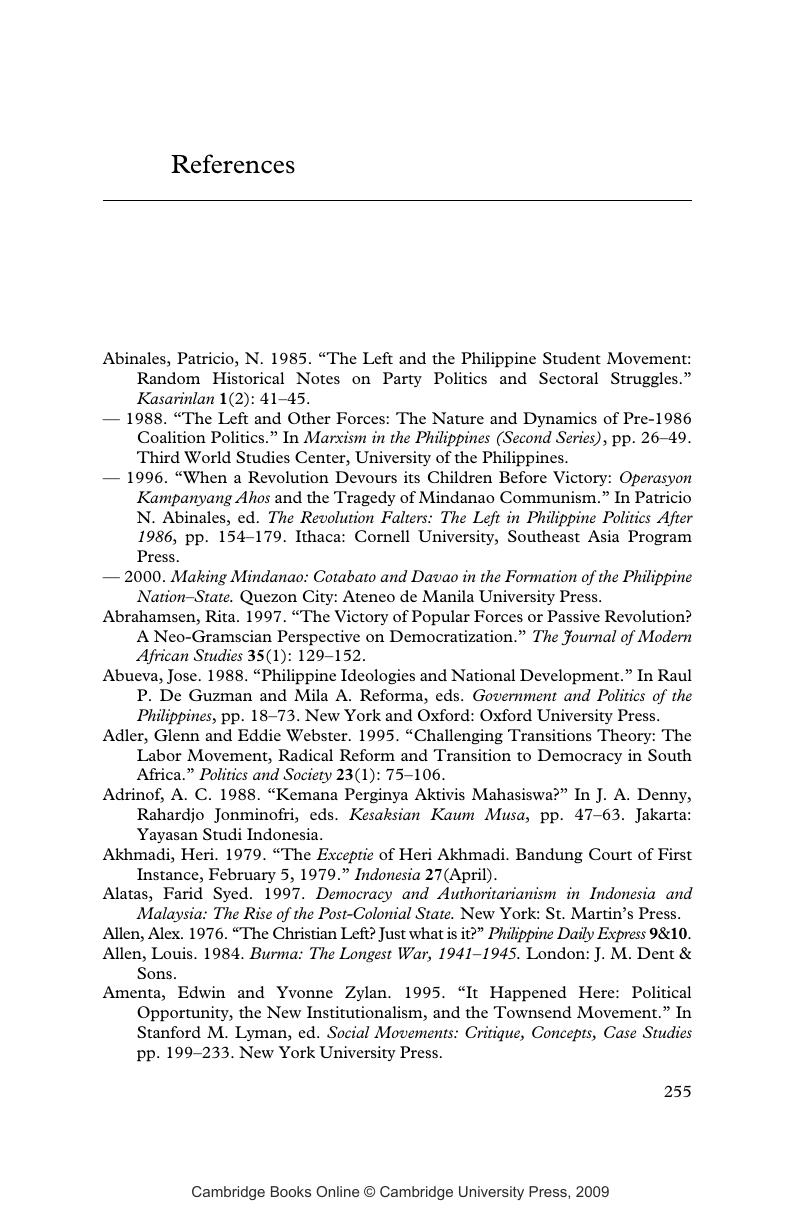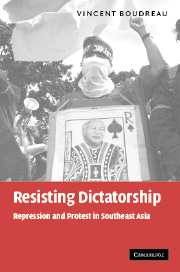Book contents
- Frontmatter
- Contents
- List of maps
- Acknowledgments
- List of abbreviations
- 1 Introduction
- 2 Protest, repression and transition in Southeast Asia
- 3 Authoritarian attack and dictatorial rise
- 4 Protest in socialist Burma
- 5 New Order repression and the Indonesian opposition
- 6 The Philippine new society and state repression
- 7 Repression and protest in comparative perspective
- 8 People power and insurgency in the Philippine transition
- 9 Protest and the underground in Burma
- 10 Indonesia's democracy protests
- 11 Democracy protest and state repression
- List of references
- Index
- References
List of references
Published online by Cambridge University Press: 15 December 2009
- Frontmatter
- Contents
- List of maps
- Acknowledgments
- List of abbreviations
- 1 Introduction
- 2 Protest, repression and transition in Southeast Asia
- 3 Authoritarian attack and dictatorial rise
- 4 Protest in socialist Burma
- 5 New Order repression and the Indonesian opposition
- 6 The Philippine new society and state repression
- 7 Repression and protest in comparative perspective
- 8 People power and insurgency in the Philippine transition
- 9 Protest and the underground in Burma
- 10 Indonesia's democracy protests
- 11 Democracy protest and state repression
- List of references
- Index
- References
Summary

- Type
- Chapter
- Information
- Resisting DictatorshipRepression and Protest in Southeast Asia, pp. 255 - 281Publisher: Cambridge University PressPrint publication year: 2004



